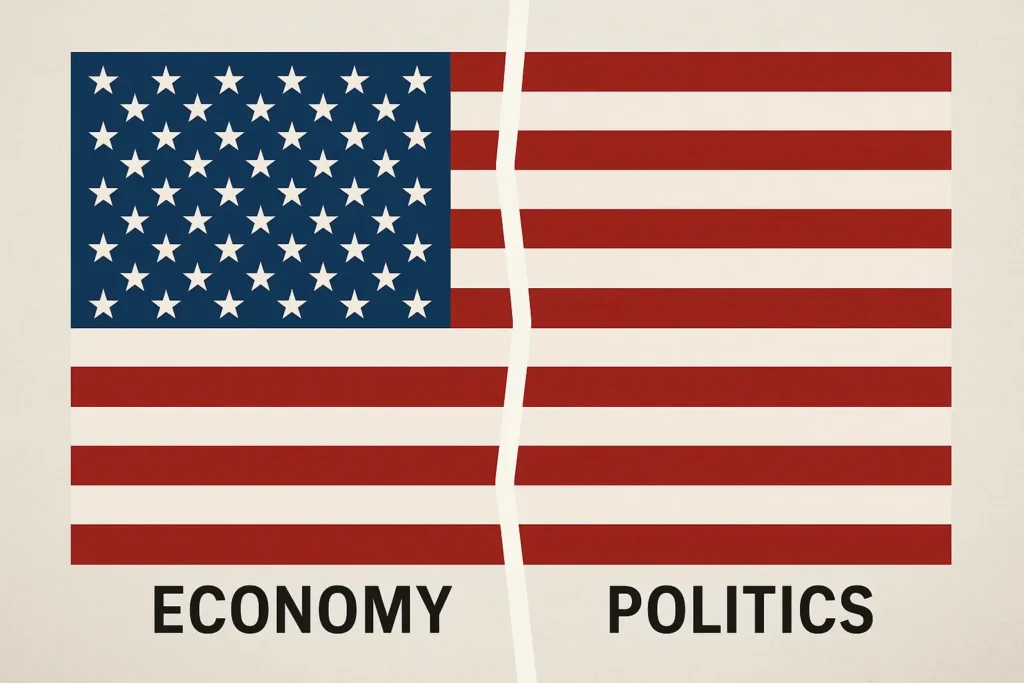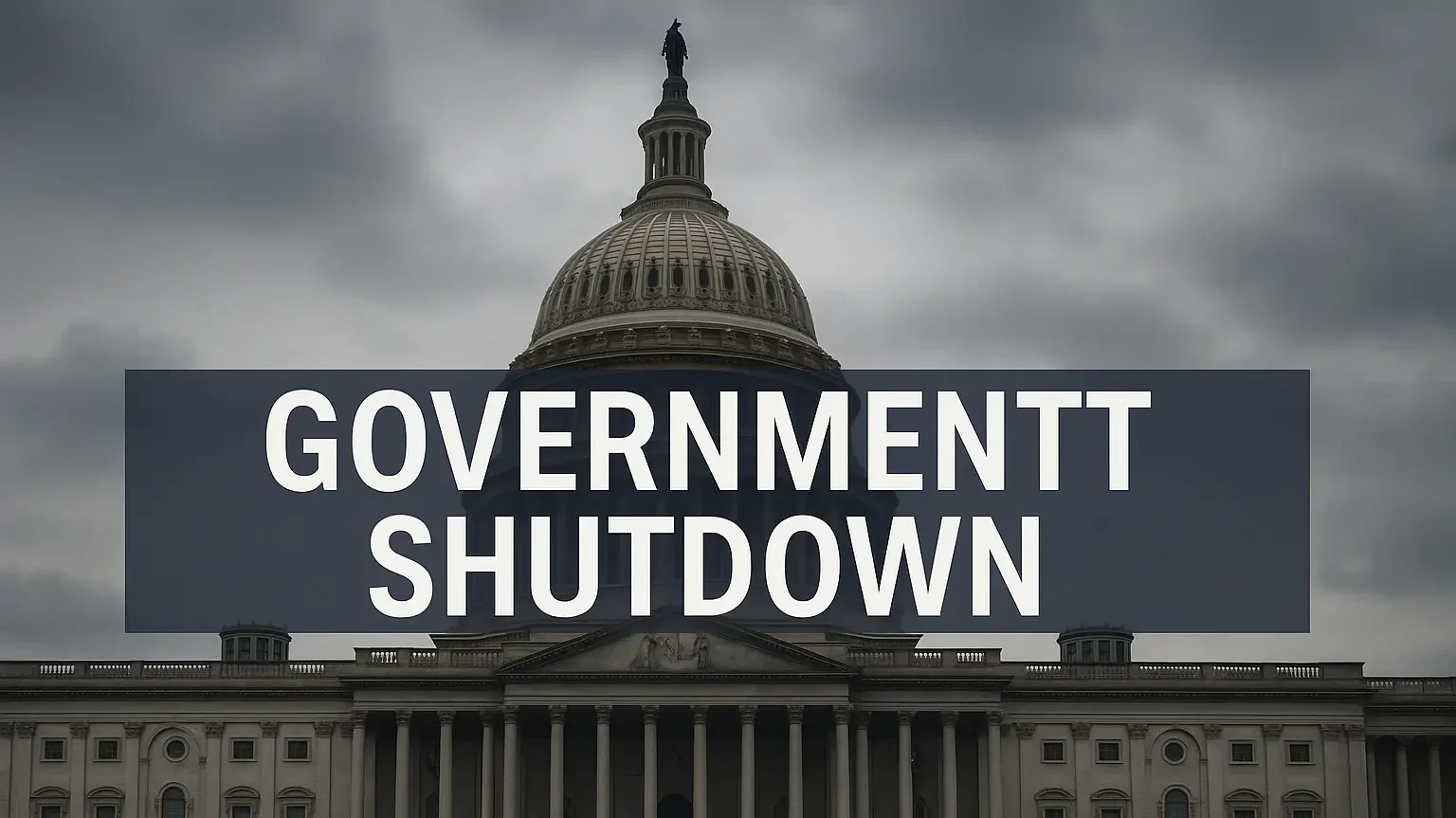The United States is now facing the longest government shutdown in its history. Federal paychecks are halted, public benefits delayed, and small businesses that rely on government contracts are struggling to stay afloat. Yet, interviews with a group of voters conducted by Reuter reveal an intriguing paradox: while the shutdown has disrupted their lives, many Trump supporters remain firmly loyal to the former president.
Economic Impact Across America
The shutdown, which began on October 1, 2025, has brought large sections of the federal government to a standstill. From IRS offices to national parks, operations have been suspended as lawmakers remain deadlocked over budget disagreements.
According to a White House memo cited by Politico, the U.S. economy is losing approximately $15 billion in GDP each week the shutdown continues. Federal employees, contractors, and benefit recipients are among the hardest hit.
Table: Estimated Economic Impact of the Federal Shutdown
| Category | Estimated Weekly Loss (USD) | Source |
|---|---|---|
| GDP Output | $15 Billion | Politico |
| Federal Pay & Contractor Wages | $2.5 Billion | The Guardian |
| Local Business Revenue | $1.8 Billion | Washington Post |
Table data compiled from multiple publicly available reports.
Personal Stories, Persistent Loyalty
Reuters interviewed five Trump voters as part of a 20-person panel that has been tracked monthly since February. Despite furloughs, missed rent, and delayed healthcare reimbursements, nearly all said they continue to support Trump.
- A retired property owner in Arizona said she is losing rental income because her tenant, a federal worker, has not been paid. Still, she blames Congress, not Trump.
- In Washington State, a job seeker whose mother is a furloughed IRS contractor says the shutdown “is painful but necessary to fix the system.”
- A California content creator saw his Medicaid dental claims delayed but insisted “this isn’t Trump’s fault — it’s the gridlock in Washington.”
Such statements reflect how political identity often outweighs short-term economic hardship. Many of these voters said they view the shutdown as a “stand for accountability,” even as their own financial situations worsen.
Broader Political Context
A Washington Post–ABC–Ipsos poll shows that 45% of Americans blame Trump and the GOP for the shutdown, while 33% blame Democrats. Yet among the Reuters panel, most respondents said Democrats were at fault for “refusing to compromise” on healthcare and budget terms.
This divide underscores America’s deep political polarization — one where partisan loyalty and cultural identity often outweigh personal economic realities.

The Domino Effect
Beyond federal workers, the shutdown’s ripple effects are reaching private contractors, local landlords, and small businesses that depend on government-related spending. Analysts warn that if the deadlock continues, the damage could extend into the broader economy, including financial markets and consumer confidence.
According to economists at Moody’s Analytics, if the shutdown persists beyond mid-November, the cumulative GDP loss could exceed $100 billion — comparable to a mild recession.
Analysis: When Politics Surpasses Paychecks
This prolonged crisis highlights a shift in voter psychology. Economic pain that would traditionally weaken political support is now filtered through ideological loyalty. For many Americans, belief in a political leader’s cause has become more powerful than the immediate impact on their household income.
Experts note that this kind of polarization can limit the political consequences of policy failures — making future shutdowns or standoffs more likely.
Conclusion
The 2025 federal shutdown demonstrates that in today’s America, politics often transcends economics. Even as paychecks stop and benefits stall, many voters remain loyal to their political identity. The long-term cost, however, may not only be financial — it may further erode the public’s faith in compromise itself.

External References:
- Reuters Original Report – Nov 8, 2025
- Politico: U.S. GDP Loss Each Week of Shutdown
- The Guardian: Federal Workers Facing Furloughs and Pay Gaps
- Washington Post: Poll Data on Shutdown Blame
Frequently Asked Questions (FAQs)
The 2025 U.S. government shutdown has sparked widespread concern across economic and political circles. Many readers are curious about how it began, who is most affected, and why some voters continue to support political leaders despite personal financial hardships. Below are answers to some of the most common questions related to the ongoing federal shutdown and its political implications.
1. What caused the 2025 U.S. federal government shutdown?
The shutdown began on October 1, 2025, when lawmakers failed to agree on a federal spending bill. Disputes over healthcare subsidies, budget allocations, and political priorities between Republicans and Democrats led to the government’s partial closure and halted funding for several departments.
2. How long has the 2025 shutdown lasted so far?
As of November 8, 2025, the shutdown has become the longest in U.S. history, exceeding the 35-day record from 2018–19. Multiple federal agencies, including the IRS and the Department of the Interior, remain closed or are operating with limited staff.
3. Who is most affected by the government shutdown?
The hardest hit are federal employees, government contractors, and low-income households relying on public benefits. Many small businesses and landlords connected to federal workers are also struggling with delayed payments and reduced spending.
4. Why do some Trump supporters still back him despite the shutdown’s impact?
According to interviews by Reuters, many Trump voters view the shutdown as part of a necessary political struggle rather than a failure of leadership. They tend to blame Congress or opposing parties for the impasse, demonstrating how political identity can remain stronger than short-term financial hardship.
5. How is the U.S. economy being affected?
A White House analysis (via Politico) estimates that each week of shutdown costs the U.S. economy approximately $15 billion in lost GDP. The suspension of federal contracts, benefit programs, and agency operations is having ripple effects on local businesses and consumer confidence.
6. Could this shutdown influence future U.S. elections?
Experts suggest that while the shutdown has exposed economic vulnerabilities, it may not significantly change the political loyalties of core voter groups. The persistence of partisan alignment — even during financial strain — could continue to shape campaign strategies heading into the 2026 midterm elections.
Author Note:
Written by Abhishek Chouhan, founder of MoneyUncut.com, with over a decade of experience covering global finance and economic trends.
Disclaimer:
This article is for informational and educational purposes only. It does not represent political endorsement or investment advice. The views expressed are based on publicly available data and journalistic analysis.
America’s Soaring National Debt in 2025: Global Economic Impacts and Future Challenges
How AI is Revolutionizing Financial Services: The Global Economic Impact in 2025
About the Author – Abhishek Chouhan
Abhishek Chouhan is a Global Finance Analyst and Market Researcher with over 15 years of experience studying stock markets, investor behavior, and long-term wealth cycles across the US, Europe, and Asia. He is the founder of MoneyUncut.com, a global financial intelligence platform focused on decoding market psychology, economic trends, and how human behavior shapes financial outcomes.


One comment